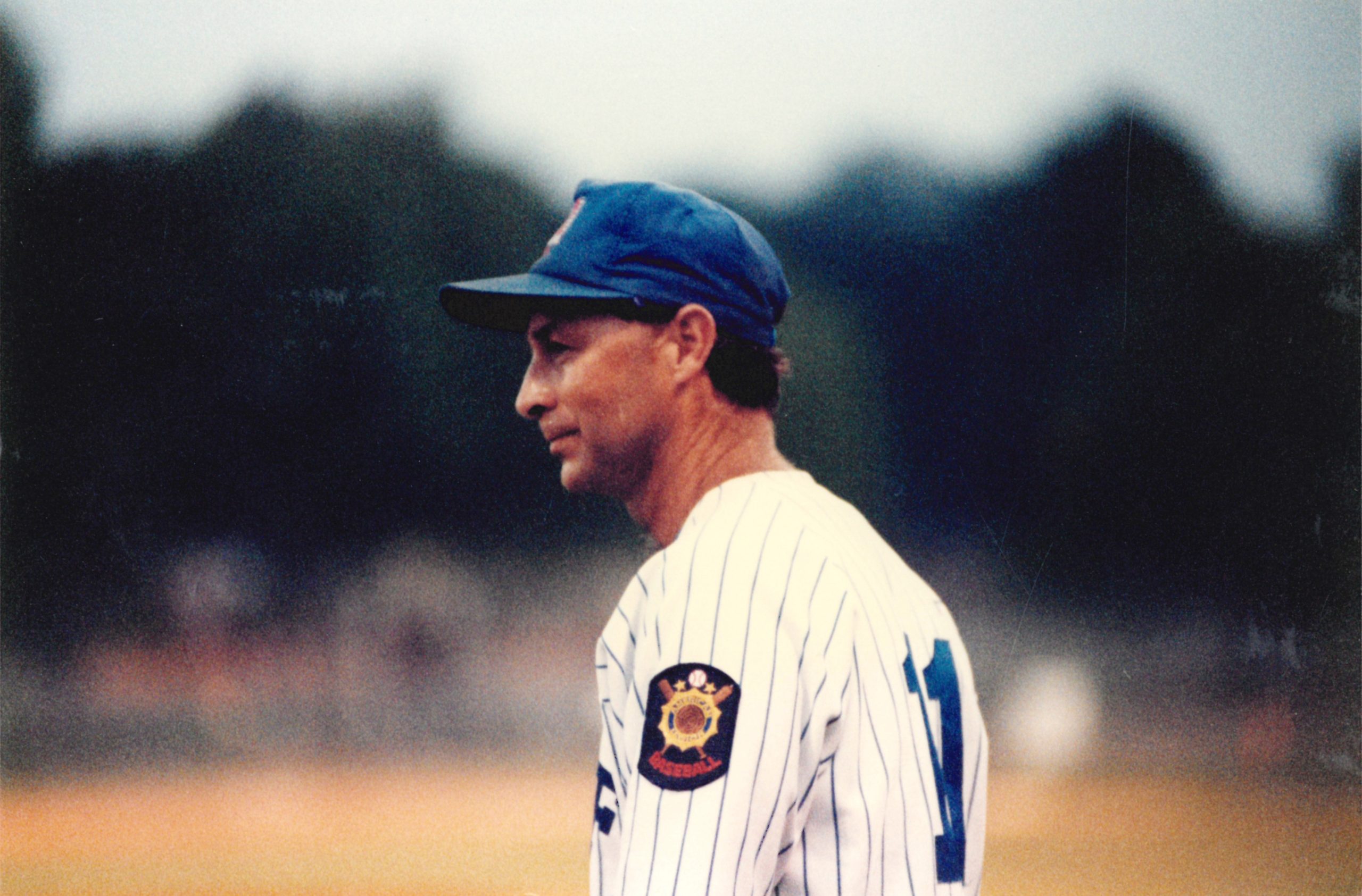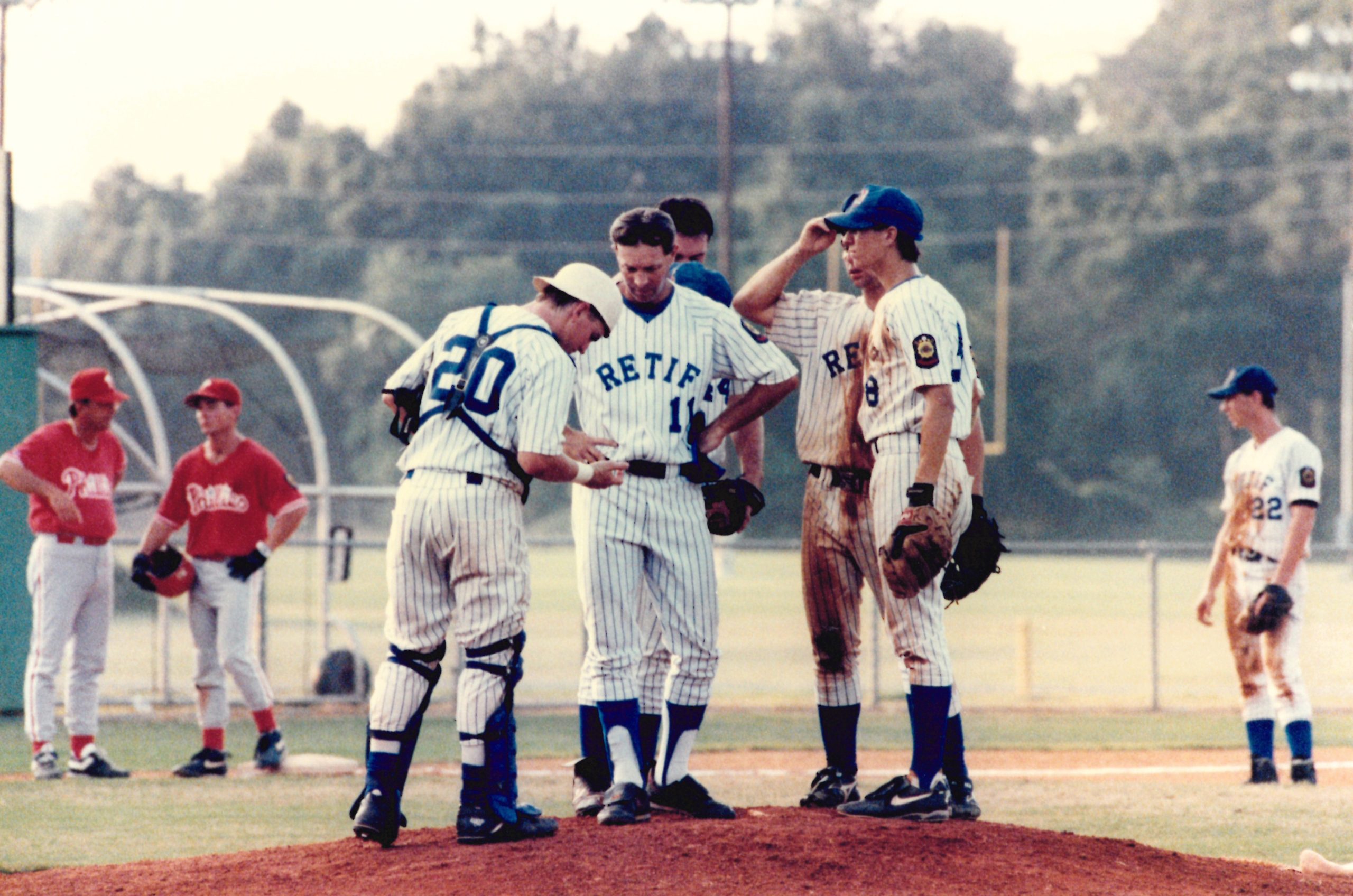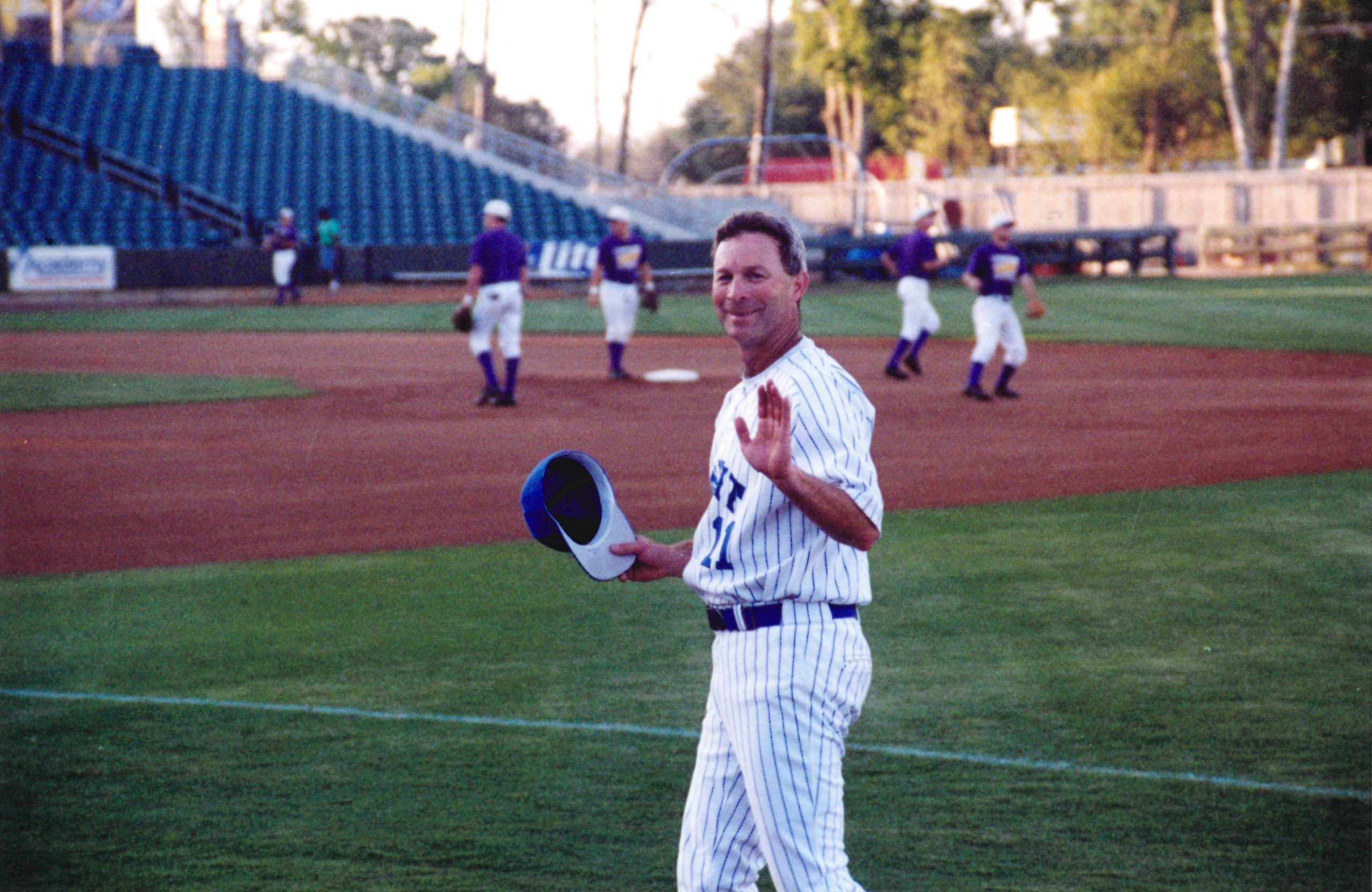Athletic Director David Moreau to Receive John Paquette Award

The John Paquette Award
At Jesuit, faculty members serve as mentors and role models for Blue Jays well beyond the scope of their instructional roles. For many teachers and coaches, this vocation to inspire and lead young men to pursue God’s greater glory lasts for years and decades. The newly established John Paquette Award recognizes those faculty members who have given forty or more years of service to Jesuit High School.
The award is named for John Paquette of the Class of 1925, who served as Jesuit’s registrar for 70 years.
David Moreau is the son of Donald Moreau ’54, a proud Jesuit alumnus and basketball letterman. David Moreau himself graduated from De La Salle in 1977 and later from Northeast Louisiana University in 1981, the same year in which he began his teaching and coaching career at Archbishop Shaw High School. He is married to Rosalyn Moreau, a retired educator who dedicated 33 years to teaching reading, study skills, and western civilization at Jesuit. They first met at the school’s copy machine, leading Moreau to affectionately refer to her as the “real Coach Moreau”. Their son, Steven L. Kreller ’94, followed in Moreau’s footsteps as a three-year baseball letterman.
In the summer of 1983, after a year at Holy Cross High School, he began coaching Jesuit’s American Legion Team and joined the Jesuit faculty, teaching Louisiana History, health, and P.E. He served as the head baseball coach from 1983-2005 before transitioning into the role of assistant athletic director in 2006; he was named athletic director within a year. During his tenure, Moreau led his teams to three state championships and nine district championships with an astounding overall record of 532-160. He is a member of the Louisiana Baseball Coaches Association Hall of Fame and the New Orleans Prep Hall of Fame.
There’s always been a great effort by the administration to hire teachers, coaches, and administrative assistants who pursue the mission of the school in caring for our students.
David Moreau
English teacher Daniel Fitzpatrick ’09 interviewed Coach Moreau to reflect on his tenure at Jesuit High School.
Daniel Fitzpatrick: In an environment that typically sees very high turnover rates, Jesuit stands out by keeping faculty and staff around for a long time. One of my favorite things about teaching here is seeing so many of my own teachers around. Still, it’s truly remarkable to stay in one place for forty years or more. What’s kept you at Jesuit for all this time?
Moreau and three other faculty members who will receive this award will be honored at the Alumni Homecoming Mass on October 14, 2023 in the Chapel of the North American Martyrs. Register here for the event.
David Moreau: I like to be a part of something great, and Jesuit is great. But it’s not just because of our past accomplishments or present achievements. It’s because of all the good this place does for so many boys and their families and their teachers. It’s a place that helps so many people do special things.
Fitzpatrick: What are some of the ways in which Jesuit has changed the most since you started?
Moreau: Well, starting from the outside and working our way in, it’s easy to talk about all the developments of John Ryan and the Roussel Building, changes in parking and Will Clark field, and of course the Madonna della Strada Building, not to mention renovations to the cafeteria and the commons and the chapel. The long-range planning that the administration has consistently brought to the school always politely pushes us forward into the future.
On the athletic side, we’ve seen our programs continue to grow and we’ve added new programs like bowling, bass fishing, rugby, lacrosse, and gymnastics, and all in the last ten to twelve years.
Sometimes I’m concerned about the way that athletes are specializing at younger and younger ages. A few years back we noticed that we only had a handful of multi-sport athletes in the whole school. So I, with Fr. Fitzgerald and Mr. Kernion and a few others, started looking at ways we could encourage students to participate in multiple sports throughout the year. It’s a practice that benefits the boys in so many ways, and we’ve been happy to see those numbers grow. Last year, we had 66 multi-sport athletes, and you don’t have to look far to find examples of that practice really paying off for students, like Jack Larriviere ’22 a few years ago, when he led us to the state championship game in football and then became a state champion javelin thrower.

Fitzpatrick: What are some ways in which Jesuit has stayed the same?
Moreau: We’ve never wavered on the formation of the persons we’ve been trusted to care for. There’s always been a great effort by the administration to hire teachers, coaches, and administrative assistants who pursue the mission of the school in caring for our students. But we’ve gotten more and more intentional about that care as time has gone by.
We have never stopped having great expectations of effort from our students in their endeavors . We have tried to push them with individual and collective care, concern, and expertise to do their best. Additionally, we have always wanted our students to form meaningful and lifelong relationships with their fellow classmates and teachers. They in turn have then have a connection to our school…That has never changed
Fitzpatrick: What’s your favorite memory from your time here?
Moreau: There have been so many incredible moments here. I’ll say the happiest event I’ve ever been a part of was the opening of John Ryan. That event brought together so much effort from alums so that we could finally have a place of our own to practice. So much work went into that event, from the initial donation by John Ryan to the many gifts by former athletes that allowed it to come together. It’s worth remembering that the real name of the place is Alumni Field at John Ryan Stadium. To see the return of Will Clark and Rusty Staub, and to feel the excitement from all the alumni, family, and athletes in that moment was just unbelievable.
Fitzpatrick: Are there any ways in which you’d like to see Jesuit continue to grow in the future?
Moreau: I’m not sure grow is the word I’d use. I do hope that as we continue to grow we never forfeit our cohesion and collegiality. As we spread out across a bigger campus, I don’t want us to lose the sense of community that’s such an important part of this place.
Fr. Fitzgerald always used to say, whenever we had to consider a possible development, that we need to ask ourselves, “If we do this, what might we lose? And if this is valuable, how do we go about it without losing what’s at stake?” And that’s something we need to continue to think about as we move forward.
Fitzpatrick: What would you consider to be your legacy at Jesuit?
Moreau: I don’t know that I have a legacy really. To me a legacy is something that you receive from those who have gone before you and build upon for the future. Everything I’ve passed on has come from my parents, youth coaches, high school and college coaches, mentors like Frank Misuraca, Fr. McGinn, and Fr. Fitzgerald, and my colleagues in the Social Studies department. I hope to continue to build on their foundation, and I hope all of us at Jesuit do that as well.
Fitzpatrick: Jesuit has been strongly reinforcing the mission of “relentlessly pursuing God’s greater glory.” How do you see this relentless pursuit at work in Jesuit athletics and throughout the school?
In recent years there’s been greater and greater intentionality in every facet of the life of the school. But the truth is that we’ve always done this at Jesuit. It’s part of who we are.
